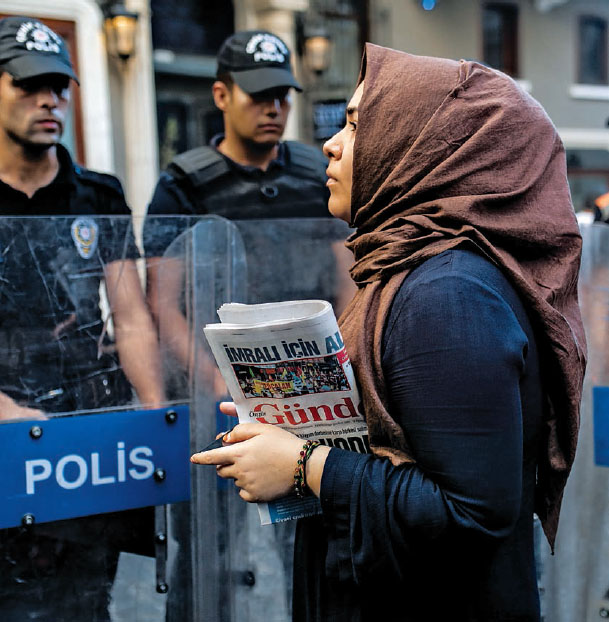IN MID-AUGUST, while on a trip to Europe, one of Turkey’s most celebrated journalists was advised by his lawyers not to return to his homeland. The source of the perceived threat: his own government. “The signs were very clear,” says the journalist, Can Dündar, who on August 16 resigned as editor of the independent newspaper Cumhuriyet. Dündar was sentenced in May to nearly six years in prison after being found guilty of revealing state secrets. His lawyers have appealed the verdict, but Dündar says the courts are a tool of President Recep Tayyip Erdogan and no longer independent. “The prosecutor who arrested me is now the chief prosecutor in Istanbul,” Dündar says, speaking by phone from his new home in a European city that he asks not be identified. “I am [at the] top of the list of journalists to be arrested [on further charges]. I could even face the death penalty.” After Turkey’s failed military coup on July 15, Erdogan voiced support for reintroducing capital punishment.

SILENCED: Dozens of Turkish journalists have been arrested and others have fled the country since the July 15 coup attempt.
YASIN AKGUL/AFP/GETTY
A rapidly growing number of Turkish journalists have taken refuge abroad, fearing they could be arrested and detained under laws that give security forces increased powers during Turkey’s current state of emergency. Since the coup attempt, more than 40,000 people— academics, judges, journalists and state employees—have been detained in a wave of politically oriented arrests so extensive that it has prompted the government to make space in Turkey’s prisons by paroling 38,000 people imprisoned for crimes committed before July.